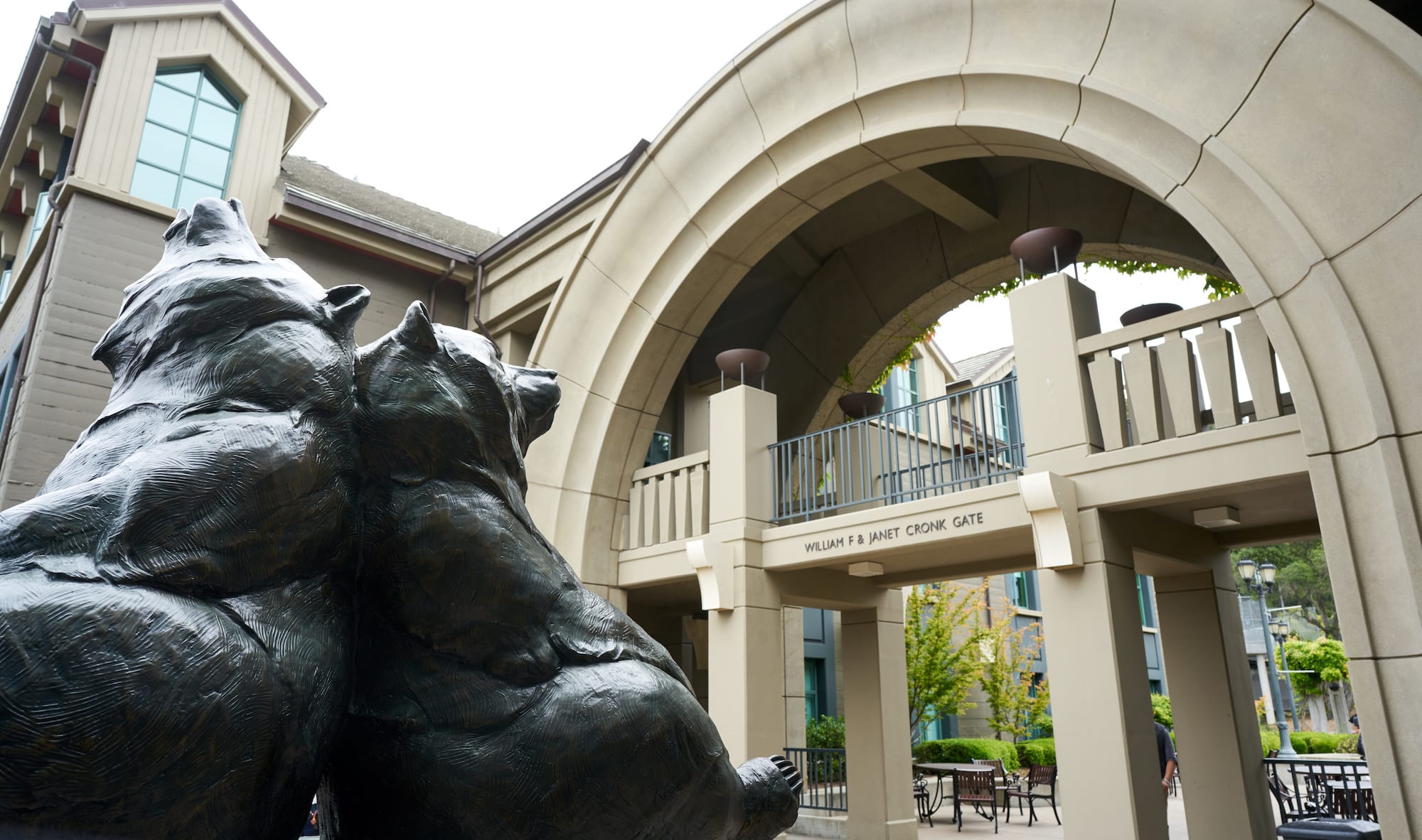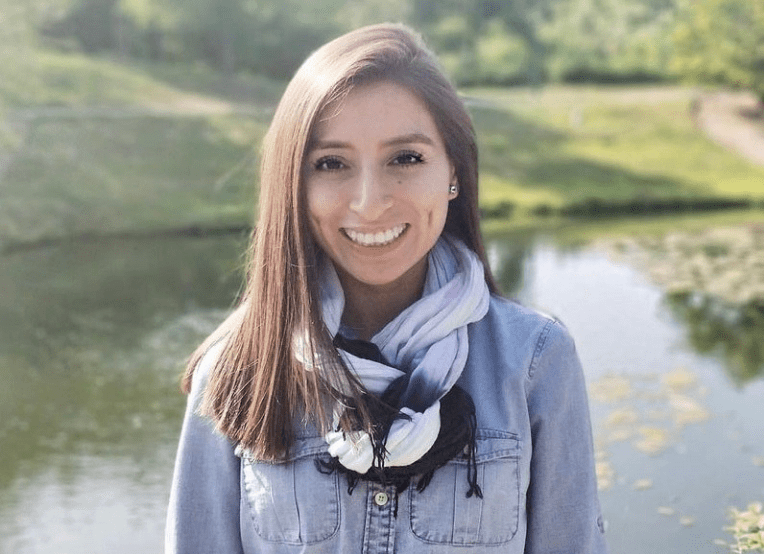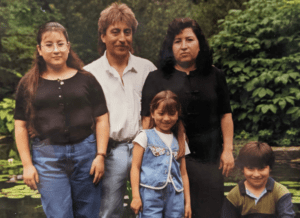Topic: Healthcare
5 questions for Emily Ewell from Pantys
Trump Helped Boost Vaccine Use After Endorsement in Online Ad
Types of MBA specializations explained
The 10 most innovative companies with fewer than 100 employees
2022 Haas Healthcare Conference to focus on health inequities, precision medicine

Healthcare inequities, provider burnout, and precision medicine to predict and treat disease are among the topics on tap for the upcoming Haas Healthcare Conference.
“Meeting this Moment in Healthcare” is the theme for this year’s event, which will be held virtually March 10-11. The annual conference, organized by the student-led Haas Healthcare Association, will span two days.
Conference organizers are Abhishek Gupta, Nick Helgeson, and Taryn Stromback, all MBA 22.
“COVID-19 has not only shined a light on gaps in the healthcare system, but it has also accelerated the funding and innovation in the industry needed to address those challenges,” said Stromback. “Our conference brings together leaders from across all healthcare sectors to discuss how the industry is using this momentum to drive change today, and how this will shape the future of health.”
Somesh Dash, BS 01, general partner at venture capital firm IVP, will kick off Thursday’s session with a fireside chat, followed by a panel discussion on growing early-stage startups and a pitch competition, where eight UC Berkeley and UCSF startups will present to healthcare venture capitalists.
Friday’s line-up includes keynotes from David Rhew, global chief medical officer and VP of Healthcare at Microsoft, and Heather Mirjahangir Fernandez, CEO and co-founder of Solv.
During the lunch hour, Marian Wentworth, president and CEO of Management Sciences for Health, joins Steve Davis, senior strategy advisor for The Bill & Melinda Gates Foundation, for a fireside chat about global collaboration during the COVID-19 pandemic. Other notable guest speakers include Amy Fan, MBA 19, co-founder of Twentyeight Health, and Jason Bellet, BS 14, co-founder and chief strategy officer at Eko Health.
The day also includes panel discussions on addressing systemic healthcare inequities in the US; the power of precision medicine in predicting, preventing, and treating disease; provider burnout and the future of the clinician workforce; and why women’s health should be everyone’s issue.
The conference is open to the public. Tickets can be purchased here.
Could A.I. revolutionize the future of heart health?
Pandemic proves the mother of health innovation as startups raise $9B in NYC Pandemic proves the mother of health innovation as startups raise $9B in NYC
Using behavioral science and AI to meet the needs of patients and providers
Meet the MBA Class of 2023: Sheetij “Ricky” Ghoshal, U.C. Berkeley (Haas)
Meet the MBA class of 2023: Charlie Yates, U.C. Berkeley (Haas)
Doctors turning to DeepScribe amidst burnout
Newsom weighs in on controversy over In-N-Out’s vaccine stance
Pleasant Hill In-N-Out Burger shut for violating COVID orders
Haas Voices: ‘Fighting for healthcare equity in my community’

Haas Voices is a first-person series that highlights the lived experiences of members of the Berkeley Haas community. In honor of Latinx Heritage Month, we spoke with Adilene Dominguez, EWMBA 24, who’s determined to create a new business model that will provide equitable health care to everyone, regardless of economic status. She shares her story below.
Growing up in Waukegan, Illinois, a suburb north of Chicago, I lived in a world with many blessings. My parents weren’t millionaires, they were migrant workers who worked 80 hours a week. But the opportunities afforded to us–access to public schools, tutors, health insurance, the ability to find work–were privileges that many Latinos in my community, including my extended family members, did not have.
I began to notice inequities, specifically in healthcare, when I was about five years old. I often accompanied friends and family whenever they needed to see the doctor. They spoke little English, so I translated on their behalf. I noticed that they’d have to stand in line for hours at the local clinic to get medical treatment, whereas if I needed medical care, my parents would take me to a hospital because I had health insurance. It just didn’t seem fair to me that our friends and family couldn’t get the same quality health care as I did.

Observing those disparities early on, coupled with a natural aptitude for science and math, led me to Beloit College where I joined the pre-med program. As a pre-med student, I interned with doctors and volunteered at hospitals, but quickly realized that I didn’t want to be a doctor. I thought that I’d have a greater impact if I could find a way to bring equitable health care to my community.
After college, I landed at Becton Dickinson (BD), a medical device company, working as a research and development (R&D) technician. I moved up the ranks from a technician to a scientist and eventually transitioned from R&D to global marketing and strategy.
I also lead the Hispanic Organization for Leadership and Advancement (HOLA) at BD. Through my work with HOLA, I help raise awareness within my industry about health disparities that impact the Latino community. When the pandemic hit, access to testing was limited, especially in Latino communities in California, Arizona, and Texas. I, along with marketers across eight HOLA chapters, decided to advocate for the distribution of Veritor, a rapid antigen test that can detect the COVID-19 virus, to health clinics servicing Latino communities. Through our efforts, we helped the Family Health Center of San Diego, which provides care to more than 215,000 patients a year, 91% of whom are considered low-income and 29% are uninsured.
It’s been gratifying to help my Latino community as it’s been disproportionately impacted by the COVID-19 pandemic. But I need to do more. The pandemic magnified health disparities that have long existed in Black and Brown communities. Whenever there’s a hurricane, earthquake, or any natural disaster, health care seems to be the primary resource that’s out of reach for these communities.
The pandemic magnified health disparities that have long existed in Black and Brown communities.
That’s why I’m at Haas. I want to acquire the skills needed to disrupt the healthcare system in the U.S. I want to design a profitable business model that will provide equitable health care for everyone, regardless of socioeconomic status.
What does disruption look like? It’s putting the patient first and profit last. Currently, the way healthcare works in the U.S. is that whoever or whichever entity has the most influence or paying power gets access to the best medical supplies. Typically government contracts are fulfilled first. Thereafter, private institutions and public institutions get priority, and community health centers are served last.
But what if we flipped the funnel? If we help community clinics first, which serve people like farmers and hourly-wage workers–the people who are growing our food and working at grocery stores and other service industries–we can prevent the spread of any disease.
For too long, our approach to providing health care has come from the top down, when we really need to flip the funnel and think about the process much differently. We can’t keep doing business as usual when there are hundreds of people filling up the emergency room because they don’t have access to COVID-19 testing or vaccines.
Creating a new business model for the healthcare system is a lofty goal. But someone has to do it, so why not me?
Creating a new business model for the healthcare system is a lofty goal. But someone has to do it, so why not me?
I know that I’m putting a lot of pressure on myself, but it’s my responsibility to help my community. That philosophy has been ingrained in me since I was a little girl. My family, who migrated from Tonatico, Mexico, made enormous sacrifices so that my siblings and I could have a better life. So I must move forward and be a role model for younger generations. If I don’t help my community, who will?